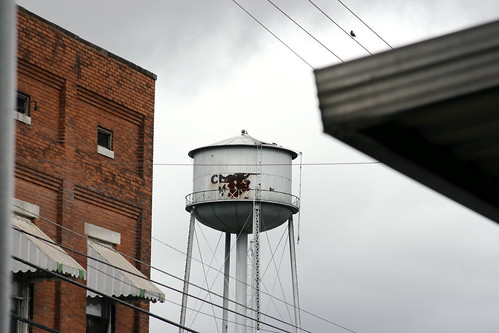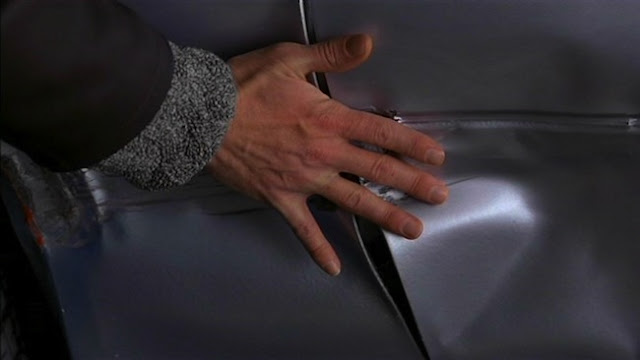If you hadn't become a film critic...
"Ray Pride takes strikingly gorgeous photographs (...follow those links), though you probably know him best for his reviews and interviews for Movie City News... I'm very glad I asked him: "If you hadn't become a film critic, what might have happened instead?" [Introduction by David Hudson.]
I grew up on a couple-acre patch of green amid rolling farmland in the west of Kentucky—I spent 18 years there one week, the tired joke goes—and didn't grow up with movies. I grew up among people. People who talked. And talked. Stories were everywhere. Histories were spoken aloud. Women and men in their eighties and nineties who had sat on the lap of Civil War veterans when they were small. Legacies were alive. Everyone knows and trusts implicitly the basic, indispensable relationships and alliances and mutual associations in a town of a thousand. You're forced to, through fires, floods, illness, economic slumps. Cemeteries were filled with the names of people you knew who were the successors of the passed. A dozen identical headstones would answer to the same name.

One night, young, I saw both Nashville on a big screen and The 400 Blows, uncut, Janus Films logo and all, on late night TV. And that was it. There was a path in the darkness ahead, like through the thicket across the way. Many movies followed. Many places followed. Jobs with stories all their own, waiting to be retold. Stories—movies—still hold weight for me in the smaller, smallest details. Things like the way someone speaks, with intonation and with his or her hands and body. The light flickering in their eyes as they recollect. A woman's hair in the breeze. Afternoon light falling across a patterned carpet. The haphazard, cumulative details of a distant urban alleyway (especially signed in an unfamiliar idiom). How a man looks at a woman; how a woman looks at a man. (Truffaut described similar vivid details as "privileged moments.") I can't imagine how my personal history, my work and travels before doing what I do now, could have led to anything other than fixing onto how stories are constructed, stories that capture the weight of community, that are oral histories widened to the scale of myth, and of landscapes, even unpopulated—especially unpopulated— that are dreams in and of themselves.

[Originally published in a different form, GreenCine Daily, July 29, 2006.]
I grew up on a couple-acre patch of green amid rolling farmland in the west of Kentucky—I spent 18 years there one week, the tired joke goes—and didn't grow up with movies. I grew up among people. People who talked. And talked. Stories were everywhere. Histories were spoken aloud. Women and men in their eighties and nineties who had sat on the lap of Civil War veterans when they were small. Legacies were alive. Everyone knows and trusts implicitly the basic, indispensable relationships and alliances and mutual associations in a town of a thousand. You're forced to, through fires, floods, illness, economic slumps. Cemeteries were filled with the names of people you knew who were the successors of the passed. A dozen identical headstones would answer to the same name.

One night, young, I saw both Nashville on a big screen and The 400 Blows, uncut, Janus Films logo and all, on late night TV. And that was it. There was a path in the darkness ahead, like through the thicket across the way. Many movies followed. Many places followed. Jobs with stories all their own, waiting to be retold. Stories—movies—still hold weight for me in the smaller, smallest details. Things like the way someone speaks, with intonation and with his or her hands and body. The light flickering in their eyes as they recollect. A woman's hair in the breeze. Afternoon light falling across a patterned carpet. The haphazard, cumulative details of a distant urban alleyway (especially signed in an unfamiliar idiom). How a man looks at a woman; how a woman looks at a man. (Truffaut described similar vivid details as "privileged moments.") I can't imagine how my personal history, my work and travels before doing what I do now, could have led to anything other than fixing onto how stories are constructed, stories that capture the weight of community, that are oral histories widened to the scale of myth, and of landscapes, even unpopulated—especially unpopulated— that are dreams in and of themselves.

[Originally published in a different form, GreenCine Daily, July 29, 2006.]
